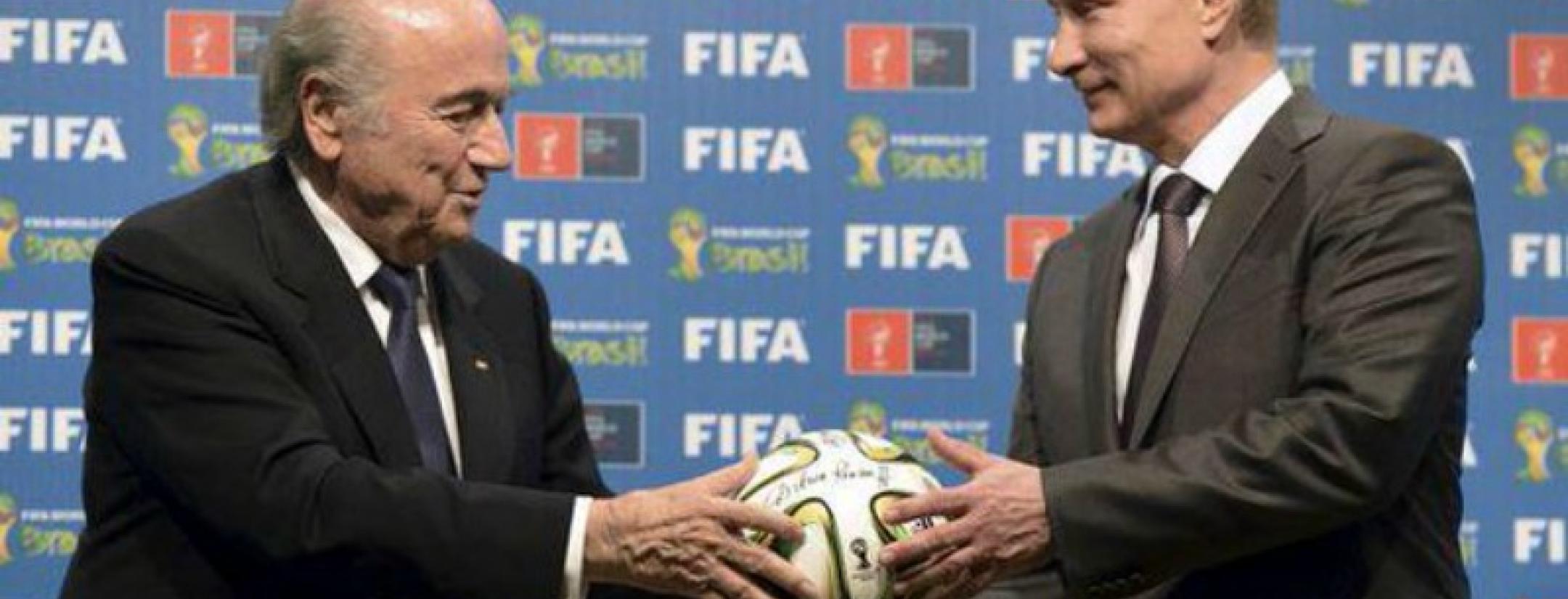In news that can perhaps be filed under “Yet More Evidence That The Pope Is a Committed Catholic”, the World Anti-Doping Agency has released a 325-page report accusing the Russian Athletics Federation (ARAF) of sending athletes to the 2012 London Olympics that it complicity encouraged to use performance enhancing drugs. The report calls for Russia to be banned from the 2016 Olympics in Rio.
Drug-use within athletics is nothing new, so why does this matter to those of us who love the beautiful game? Because one of the main figures implicated in the report – Russian Sports Minister Vitaly Mutko – just so happens to be the Chair of the 2018 Russia World Cup Organizing Committee and Deputy Chair of the Security and Integrity Committee.
Mutko stands accused of ordering a Moscow-based testing center to “manipulate certain samples”, while also overseeing the destruction of all 1,417 samples requested by the inquiry. Although the report says it found no hard evidence of government involvement, Dick Pound, the report’s author, writes that “it would be naive in the extreme to conclude that activities on the scale discovered could have occurred without the explicit or tacit approval of Russian governmental authorities.”
Just so we’re all on the same page, that means the man in charge of the body responsible for preparing and staging the 2018 World Cup, as well as the committee overseeing the integrity and good governance of the competition, stands accused of playing a key role in a systematic doping program that WADA describes as “state-sponsored cheating”.
Could performance enhancing drugs help Russia win the 2018 World Cup? Probably not. Unlike athletics or cycling, football is dependent enough on skillsets independent of physical performance to render doping a marginal gain, not a game changer. But it could certainly give any team an edge: to run faster, jump higher and stand stronger.
Perhaps more worrying for the World Cup, however, is the now-established pattern of behavior this latest report supports, namely an “acceptance of cheating at all levels [that] is widespread and of long standing” within Russia. Destroyed drug test results have uncomfortable parallels with the destroyed laptops and emails of Russia’s successful 2018 World Cup bid; diktats from on high to manipulate athlete’s samples sit neatly with reports of coercion by Russian security services during drugs tests at the 2014 Sochi Winter Games.
If a government is prepared to support a nation-wide drug-use program, who is to say it wouldn’t bribe referees or intimidate opposing teams at a tournament in its own back yard? If Russia thought it important enough for its athletes to win victories for the motherland at a competition several thousand miles away, what lengths would they go to when they’re hosting the world’s biggest single-sport tournament?
We’re hypothesizing, of course, on allegations that Russia unsurprisingly disputes. We here at The18 would never accuse a stand-up guy like Vladimir Putin of such nefarious behavior. Lord no, we have every confidence in his moral compass.
But it’s nevertheless another worrying revelation about the country set to host a tournament that is meant to be a celebration of all things football, calling into question once again the decision-making of those who deemed Russia fit and proper to hold a World Cup.
Thank goodness FIFA will be on hand to ensure fair play.




